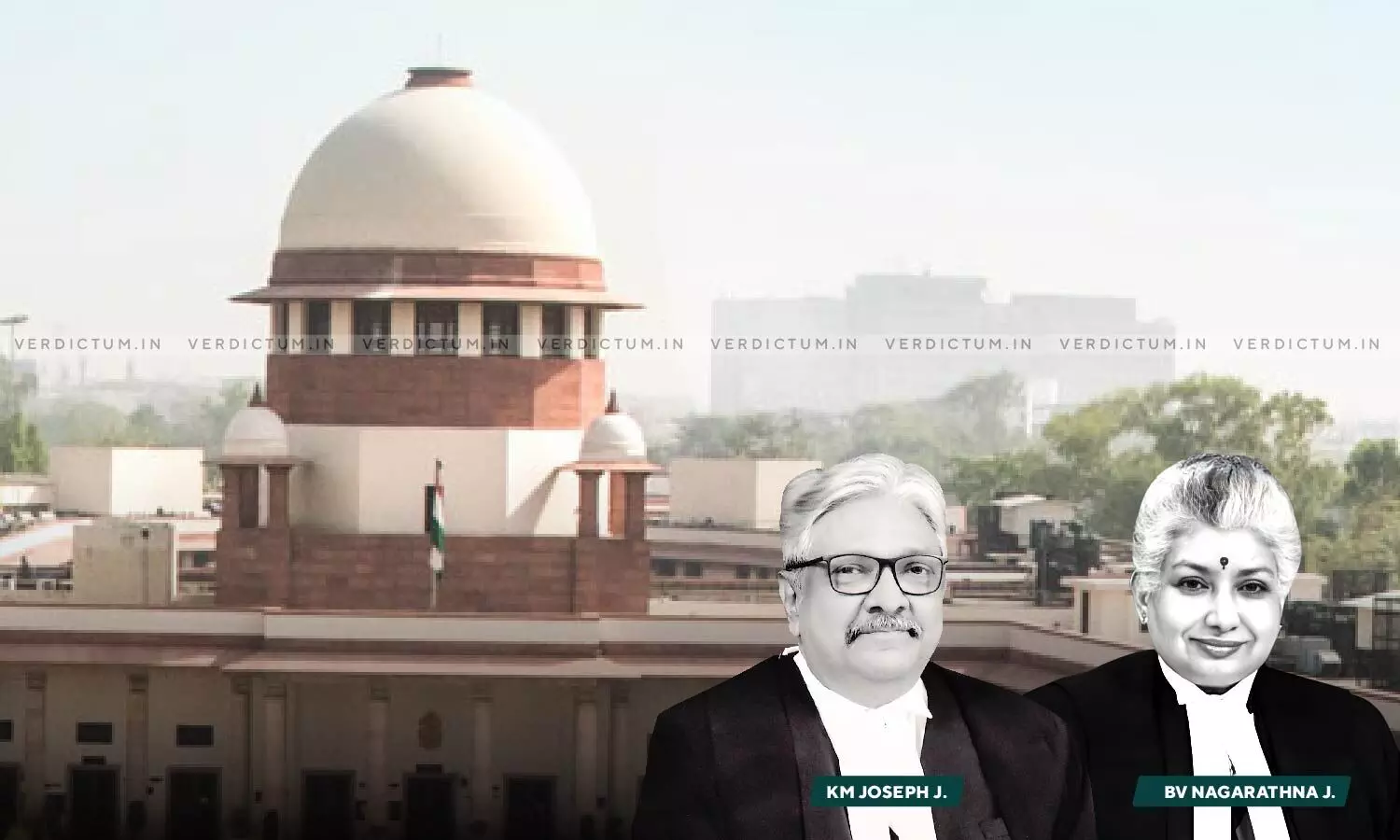
Arbitration Act| Court Cannot After Setting Aside Award Proceed To Grant Further Relief By Modifying Award: SC
 |
|The Supreme Court has reiterated that the Court cannot after setting aside the award proceed to grant relief by modifying the award as per the Arbitration Act.
The two-Judge Bench of Justice K.M. Joseph and Justice B.V. Nagarathna held, “The High Court also erred in proceeding to order restoration of the dealership to the first respondent after setting aside the award and going further by leaving it open to the first respondent to claim damages. It is beyond the pale of any doubt that the Court cannot, after setting aside the award, proceed to grant further relief by modifying the award. It must leave the parties to work out their remedies in a given case even where it justifiably interferes with the award.”
The Bench referred to the judgment in the case of Project Director, National Highways No. 45 E and 220 National Highways Authority of India v. M. Hakeem and another (2021) 9 SCC 1.
Advocate Vikram Mehta appeared on behalf of the appellants while Senior Advocate Devdatt Kamath and Advocate Shailesh Madiyal appeared on behalf of the respondents.
Brief Facts -
In 2003, Indian Oil Corporation (IOC) entered into a petrol/hsd pump dealer agreement with the respondent and thereafter, there was a physical interaction in the course of which IOC insisted that the request of the respondent be notarised and the same was done. IOC took possession of the petroleum outlet in 2006 and then a new dealer came to be awarded the dealership.
An appeal was filed by the respondent before the General Manager of IOC which came to be dismissed and this led to the matter being referred to arbitration. The Sole Arbitrator held that the action of the respondent in withdrawing was not in accordance with the law and that the Letter of Intent issued in favour of the new dealer was not flawed.
The Supreme Court in view of the above facts noted, “… in the light of the jurisdiction of the Court to interfere with a finding of the arbitrator within his jurisdiction, we are of the view that the High Court has palpably erred. Clause (3) permits either party to bring about a premature termination of the contract. … we are unable to find that the view taken by the arbitrator in the facts, can be characterised as being perverse. It is undoubtedly a plausible view. It closes the door for the court to intervene.”
The Court asserted that the finding of the arbitrator cannot be described as one betraying “a patent illegality.”
“We are unable to support the High Court on the basis that the clause in question did not contemplate resignation. In fact, though not in all cases, a resignation may assume effect only upon acceptance by the employer. What, on the other hand, is contemplated in clause (3) is a notice of three months terminating the contract by either party”, said the Court.
The Court observed that the High Court in a proceeding under Section 37 of the Act acted illegally in interfering with the finding of the Arbitrator and what is more, a finding found acceptable to the District Judge under Section 34 of the Act that there was acceptance vide letter.
Accordingly, the Court allowed the appeals, set aside the judgment of the High Court, and restored the award.
Cause Title- Indian Oil Corporation Ltd. and Ors. v. M/s. Sathyanarayana Service Station & Anr.